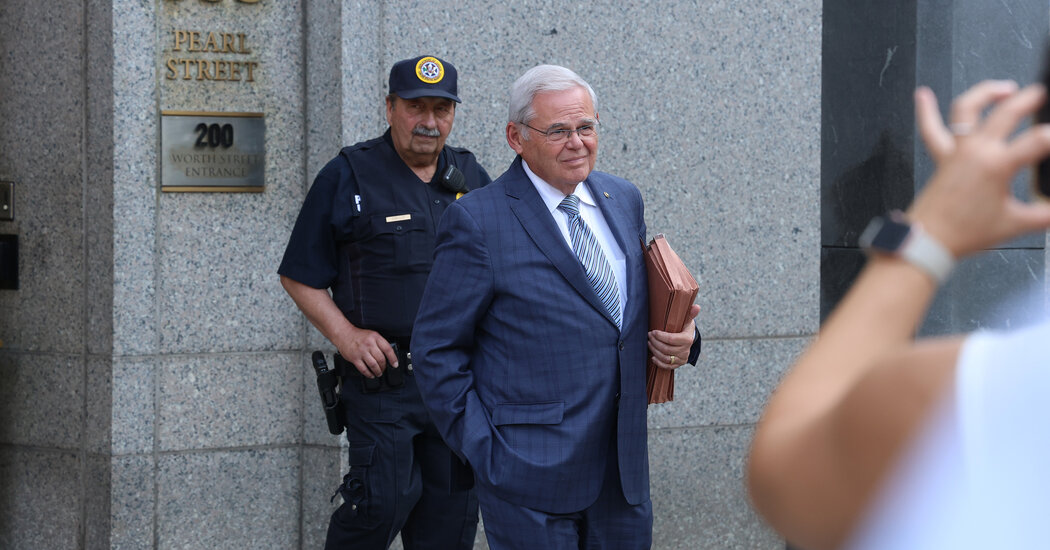
Why Menendez’s Meals With Egyptian Officials Worry Security Experts
It was a shocking charge against one of the highest-ranking members of Congress: acting as an agent of a foreign government.
Senator Robert Menendez, prosecutors said, had steered millions of dollars in aid to Egypt and toned down his rhetoric about the country’s human rights violations to lock in a lucrative side hustle for his soon-to-be wife, who had reinvented herself as an international consultant.
After a two-month bribery trial in Manhattan, jurors are expected to begin deliberating Thursday on whether prosecutors have proved a complex web of conspiracy charges. But regardless of whether they render a guilty verdict, the volley of messages and photos extracted from phones seized by the F.B.I. and introduced as evidence have revealed how Egyptian intelligence officials were able to cultivate casual access to one of the most powerful Democrats in Washington.
Mr. Menendez, the New Jersey senator who at the time led the Senate Foreign Relations Committee and had broad authority over foreign military aid, was often only a text message away from some of Egypt’s most powerful leaders. His intermediary was not a trained committee expert but his unemployed wife, who holds a master’s degree in French language and civilization but had last worked as a restaurant hostess.
The electronic exchanges have shown the degree to which modern communication methods have altered criminal prosecutions. They have also exposed potential risks to U.S. national security, according to interviews with former and current U.S. diplomats, academics and officials with Washington-based think tanks that focus on Middle East policy.
“This is a massive breach, I think, that has been underestimated,” said Jodi Vittori, a retired U.S. Air Force intelligence officer who worked on NATO’s counter-corruption task force in Afghanistan and teaches at Georgetown University’s Edmund A. Walsh School of Foreign Service.